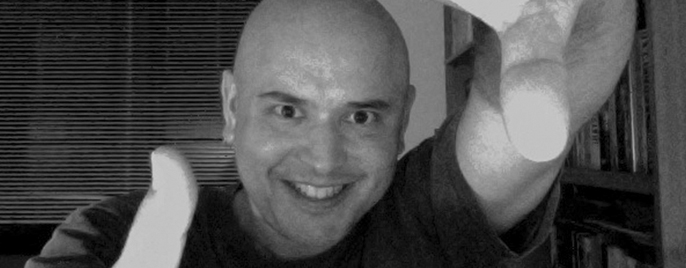The Great Mint Swindle tells the true story of the Mickelberg brothers who were wrongfully convicted of stealing gold from the Perth Mint. What issues did you encounter in creating a dramatic narrative based on recent events?
We only had 95 minutes to tell a story that spanned over 20 years. What immediately became clear was that we needed to make sure the audience had a real sense of time passing, as there are years between events in the film, while maintaining a pace and cohesiveness in our story. The voice over helped bridge the events by supplying the audience with enough relevant information to get us to the next scene and the use of date stamps helped establish the fact that we were dealing with real, life changing events that were closely followed by the media. There is a plethora of material available online.
Narration from one of the characters is used in places giving the film a slight "documentary" feel. Was this the intention and how did you decide where to use it?
The voice-over was always in the script and was primarily used as a means of covering a lot of ground in a short space of time e.g. who Alan Bond was, how easily available bank cheques were etc. Some new voice over was added where needed for the same reason. The voice over acts as a conduit into the characters emotional state of mind but not a lot survived the final cut as the actors’ performances clearly showed what they were thinking and feeling.
The story spans a twenty year history yet maintains a dramatic tension throughout. How did you approach this in the edit and did you encounter any problems in doing this?
I approached Swindle in the same way as I’ve done in the past – anything that does not progress the story or the characters in some way is dropped. This keeps the dramatic throughline clear and forward moving. However, it’s always a constant balancing act between your ‘A’ and ‘B’ stories. You need to keep your main plot in focus while taking time to discover the characters. These smaller, more intimate moments, can be just as compelling and important to the overall story. In Swindle, the tone of the film shifts from being light hearted to quite somber at the moment of their arrest, which mirrors exactly how quickly life changed for the Mickelbergs. It was important to spend time experiencing their personal heartaches while not leaving the spine of the film too far behind.
You've edited features as well as television dramas. What differences do you find when approaching the editing of each type of drama?
As far as my approach to the cutting rhythm is concerned I don’t see any difference between them. Money is the game changer. Features usually have a bigger budget, which means a longer shoot and post period than television. More time gives you the chance to experiment and/or to have the chance to get another crack at the scenes that you’re not satisfied with. Time is a luxury in television drama.
What was your favourite experience on The Great Mint Swindle?
Being a Midnight Oil fan, I never thought I’d meet any of the band members, let alone work with their lead guitarist and the composer on Swindle, Jim Moginie. It was a treat for me to hear his stories. Producers Michael Cordell, Nick Murray, and Paul Bennett were great collaborators and made you feel like part of the family. It was always an open forum with them as the cut progressed; your voice was heard and your opinion considered. My assistant, Michael Nguyen became a valuable right hand man. As for our director, Geoff Bennett, I would walk on broken glass for him. We’ve worked together many times before and I have found him to be one of the most generous, warm-hearted people I know. He hands you the footage and says: “Go for it, let me see what you come up with”. He also introduced me to goji berries.
